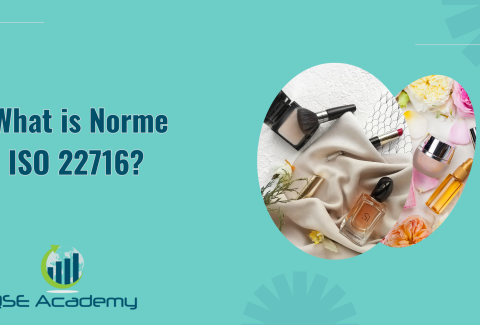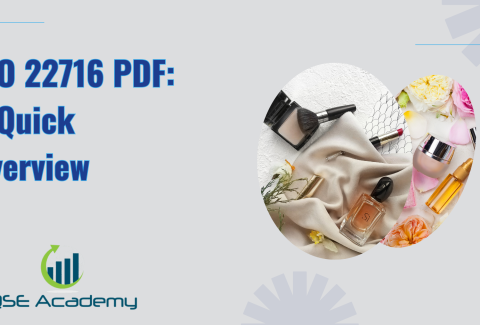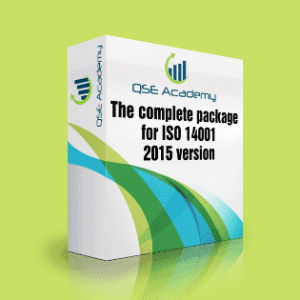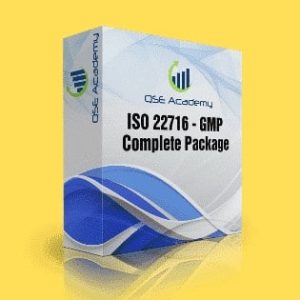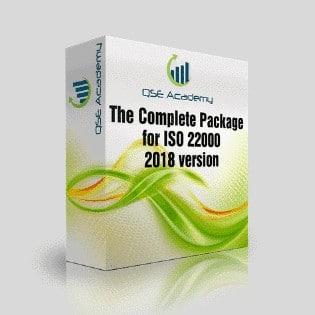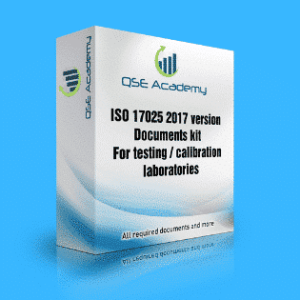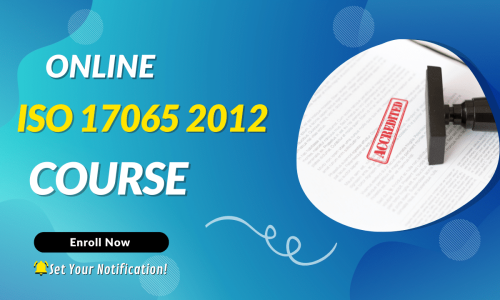What is the difference between ISO 9001 and GMP ?
ISO 9001 and GMP might sound like two different things, but when it comes to keeping your business on track with quality and safety, they both play a big role. So, what’s the deal with these two standards, and why should you care?
ISO 9001 is all about quality management systems that apply to pretty much every industry, helping businesses improve their processes and keep things running smoothly. On the flip side, GMP, or Good Manufacturing Practices, is more specialized. It’s crucial for industries like pharmaceuticals, food, and cosmetics, focusing on product safety and making sure everything is in line with the law.
In this article, we’ll break down the key differences between ISO 9001 and GMP, so you can make the right choice for your business. Whether you’re looking to boost efficiency or make sure your products are up to regulatory standards, understanding these differences is a must!
Key Differences Between ISO 9001 and GMP
Scope
When you think of ISO 9001, think of it as a universal quality management system that can be used in pretty much any industry. It’s like the “standard” for keeping things in order, whether you’re in manufacturing, tech, or even logistics.
Now, GMP is more specific. It’s designed for industries where product safety is crucial, like pharmaceuticals, cosmetics, and food. If you’re making products that people consume or put on their skin, GMP is your go-to.
Focus
Here’s where the two standards start to differ in focus. ISO 9001 is all about process standardization and continuous improvement. It’s about getting your operations running like a well-oiled machine, making sure things are efficient and always getting better.
On the other hand, GMP is much more focused on product safety. It’s about ensuring that your products meet strict safety guidelines and comply with the law. Think of it as a way to build trust with consumers by showing them that their safety is your top priority.
Applicability
ISO 9001 is pretty versatile. It’s applicable across a wide range of industries, from service-based businesses to manufacturing. If you’re looking to improve your processes, this is the standard you want.
But GMP is a bit more niche. It’s tailored to industries that need to meet specific health and safety standards, like cosmetics and food manufacturing. So, if you’re in one of these sectors, GMP is essential for making sure you’re compliant with the regulations.
Documentation Requirements
ISO 9001 likes its paperwork, but the documentation is mainly about efficiency and traceability. It ensures that you can prove your processes are working and that you’re making improvements where needed.
GMP, however, takes documentation to another level. It’s all about meeting legal and regulatory compliance, so you’ll need to keep track of everything in detail, from ingredient sourcing to production processes. In this case, the paper trail is key to showing you’ve done things the right way.
| Aspect | ISO 9001 | GMP |
|---|---|---|
| Scope | Applicable to all industries, focusing on quality management systems. | Specific to industries like pharmaceuticals, cosmetics, and food. |
| Focus | Process standardization and continuous improvement. | Product safety and compliance with regulatory requirements. |
| Applicability | Broadly applicable across various sectors, from manufacturing to services. | Industry-specific, mainly for sectors requiring strict safety controls. |
| Documentation | Emphasizes documentation for process efficiency and traceability. | Strict documentation to ensure legal and regulatory compliance. |
Here’s a table with additional GMP-specific requirements that aren’t covered in ISO 9001. It highlights more details around safety, risk management, and regulations that are specific to ISO 9001 and GMP
| Requirement | ISO 9001 | GMP (Good Manufacturing Practices) |
|---|---|---|
| Scope | ✔ General quality management system applicable to all industries | ✔ Industry-specific (e.g., cosmetics, pharmaceuticals, food) |
| Hygiene | ❌ No specific focus on hygiene | ✔ Strict hygiene practices for employees, equipment, and facilities |
| Premises | ✔ Ensures the environment supports quality processes | ✔ Specific cleanliness standards, including airflow and contamination control in production areas |
| Raw Materials | ❌ No specific focus on raw materials | ✔ Requirements for raw material sourcing, inspection, testing, and storage |
| Personnel & Training | ✔ Requires employee competence in relevant roles | ✔ Focus on GMP-specific training for hygiene, safety, and manufacturing processes |
| Production Processes | ✔ Focus on standardizing and improving processes | ✔ Detailed guidelines to prevent contamination, cross-contamination, and ensure product quality |
| Documentation | ✔ Emphasizes documentation for traceability and process efficiency | ✔ Requires comprehensive documentation for every stage of production, from raw materials to finished product |
| Internal Audits | ✔ Requires internal audits for quality management | ✔ Requires audits specifically focused on GMP compliance, including safety and regulatory checks |
| Product Safety | ✔ Focuses on quality management for consistent product quality | ✔ Focus on strict product safety standards, including contamination control, labeling, and recall procedures |
| Risk Management | ✔ Emphasizes process risks related to quality control | ✔ Requires risk assessment protocols for every stage of production to minimize safety hazards |
| Regulatory Compliance | ✔ Ensures compliance with broad quality management standards | ✔ Strict adherence to local and international regulatory requirements, including FDA, EU regulations, etc. |
| Packaging & Labeling | ✔ Packaging processes should maintain product quality | ✔ GMP requires strict packaging standards to ensure the safety and integrity of the product, with specific labeling guidelines for legal compliance |
| Equipment Maintenance | ✔ Focus on equipment maintenance for quality consistency | ✔ Requires detailed equipment maintenance schedules to prevent contamination and ensure product safety |
| Environment Controls | ✔ Ensures an environment conducive to quality | ✔ Detailed requirements for environment controls, including temperature, humidity, and lighting to maintain product safety and quality |
| Sanitation and Cleanliness | ❌ Not specified | ✔ Detailed requirements for sanitation, cleaning, and sterilization of production areas and equipment |
| Traceability of Products | ✔ Product traceability through documented processes | ✔ Enhanced traceability requirements, especially for the purpose of recalling products in case of contamination |
Voluntary ISO 9001 vs. Mandatory GMP: Understanding the Regulatory Differences
When it comes to ISO 9001 versus GMP, there’s an important distinction: ISO 9001 is voluntary, meaning businesses can choose to implement it to improve their quality management systems and boost their processes. It’s all about enhancing efficiency, consistency, and customer satisfaction. On the other hand, GMP is typically mandatory, especially for industries like pharmaceuticals, cosmetics, and food manufacturing, where regulatory bodies require strict adherence to ensure product safety and meet legal standards. So while ISO 9001 is great for continuous improvement and process optimization, GMP is about compliance with laws that are essential for protecting consumers and maintaining industry standards.
Why Understanding the Difference Matters between ISO 9001 and GMP
Alright, let’s break it down. Knowing the difference between ISO 9001 and GMP is super important for your business. Why? Because choosing the right standard can make all the difference in how you operate and, more importantly, how you meet industry requirements. It’s not just about getting certified; it’s about making sure you’re doing things the right way for your specific needs.
Take a cosmetics manufacturer, for instance. They might lean toward GMP because it’s all about ensuring product safety and compliance with regulations that are essential for the cosmetics, food, and pharmaceutical industries. GMP guarantees that everything, from raw materials to finished products, is handled with the utmost care, ensuring consumers are safe and happy. That’s key in industries where safety isn’t just important, it’s required by law.
Now, if you’re running, say, a logistics company or a service-based business, ISO 9001 might be your best friend. Why? Because it focuses on optimizing processes and making sure your operations run like a well-oiled machine.
ISO 9001 helps you standardize everything, find areas for improvement, and keep things moving smoothly. It’s about efficiency, consistency, and making sure you’re always improving.
So, in a nutshell, understanding the difference means choosing the right standard that best fits your business. Whether you’re working to ensure product safety with GMP or streamline operations with ISO 9001, knowing which one to focus on makes all the difference in how you approach quality
Why Integrating ISO 9001 and GMP Compliance Makes Sense for Your Business
Integrating ISO 9001’s Process Approach with GMP Compliance is a smart move for businesses looking to streamline their operations while ensuring both quality and safety. By merging these two, you’re not just covering all bases but also boosting your company’s ability to meet regulatory standards and improve overall product quality.
ISO 9001 provides a solid foundation with its focus on process standardization and continuous improvement. However, GMP takes things further by focusing specifically on product safety and compliance within regulated industries, like cosmetics, pharmaceuticals, and food manufacturing.
Combining the two frameworks helps you build a robust system where every part of the manufacturing process works harmoniously. This alignment not only ensures a smoother operation but also offers better traceability, higher quality control, and stronger documentation practices across all departments. Ultimately, the integration provides a clear, structured approach to both improve your processes and meet all necessary regulatory requirements, keeping your business competitive in the marketplace.
Conclusion
So, what’s the bottom line? The main difference between ISO 9001 and GMP comes down to focus. ISO 9001 is all about general quality management, helping businesses streamline processes and improve efficiency across the board. It’s versatile and can be applied to any industry. On the other hand, GMP is more specialized. It’s designed for industries like pharmaceuticals, cosmetics, and food, ensuring that products are manufactured safely and meet strict regulatory standards.
Understanding these distinctions is key to making the right choice for your business. Whether you need to optimize operations with ISO 9001 or focus on product safety with GMP, choosing the right standard is essential to meeting your goals.
Need some expert guidance in implementing ISO 9001 and GMP ? Don’t worry—we’ve got you covered. Check out our documentation packages for all the tools you need to stay on track and ensure compliance.
Looking for More Resources on ISO 9001?
If you found this article helpful, explore our premium resources designed to help you achieve ISO 9001 certification efficiently:
- 📦 Complete Documentation Package for ISO/IEC 9001 2015: Get all the essential templates and documents you need for fast, easy implementation.
- 🎓 Online Course on ISO/IEC 9001 2015 : Enroll in our comprehensive training to master the key concepts and practical steps toward certification.
- 📋 ISO/IEC 9001 2015 Checklist: Download our detailed checklist to ensure you’ve covered every step of the process.
These resources are tailored to meet your needs and ensure a smooth certification journey. Explore them today and get one step closer to success!

make ISO standards less intimidating and more approachable for everyone.
Whether it’s ISO 9001, ISO 22000, or the cosmetics-focused ISO 22716,
I’ve spent my career turning complex jargon into clear, actionable steps
that businesses can actually use. I’m not here to call myself an expert—I prefer “enthusiast” because I truly love what I do.
There’s something incredibly rewarding about helping people navigate food safety and quality management systems
in a way that feels simple, practical, and even enjoyable.
When I’m not writing about standards, you’ll probably find me playing Piano 🎹, connecting with people, or diving into my next big project💫.
- I’m an engineer specialized in the food and agricultural industry
- I have a Master’s in QHSE management and over 12 years of experience as a Quality Manager
- I’ve helped more than 15 companies implement ISO 9001, ISO 22000, ISO 22716, GMP, and other standards
- My clients include food producers, cosmetics manufacturers, laboratories, and service companies
- I believe quality systems should be simple, useful, and efficient
- Outside of work, I play piano and love learning something new every day
Let’s make ISO less about stress and more about success! 🙏
Looking for More Resources on ISO 22716?
If you found this article helpful, explore our premium resources designed to help you achieve ISO 22716 certification efficiently:
- 📦 Complete Documentation Package for ISO/IEC 22716 2017: Get all the essential templates and documents you need for fast, easy implementation.
- 🎓 Online Course on ISO/IEC 22716 2017 : Enroll in our comprehensive training to master the key concepts and practical steps toward certification.
- 📋 ISO/IEC 22716 2017 Checklist: Download our detailed checklist to ensure you’ve covered every step of the process.
These resources are tailored to meet your needs and ensure a smooth certification journey. Explore them today and get one step closer to success!



